'Insulin or death': New Hampshire voters gripped by skyrocketing drug prices
Diabetics who use insulin say the 2020 vote is high stakes for their health.
CONCORD, N.H. -- A quiet struggle over the skyrocketing price of insulin is turning the 2020 election into a referendum on survival for many New Hampshire families.
"It is insulin or death," said Stacey Patterson of Pembroke, New Hampshire, of the 100-year-old drug. "There's no other treatment for Type 1 [diabetes]. There's nothing you can do. If it's $1,000, I'm going to pay $1,000, because I have to. There's no other choice for me."
Dependence on life-saving prescription drugs, especially insulin, has dominated discussion on the campaign trail, as skyrocketing prices force families to confront political candidates over solutions.
WATCH this story on ABC News Live during special New Hampshire primary coverage, Tuesday, Feb. 11, starting at 7 p.m. ET.
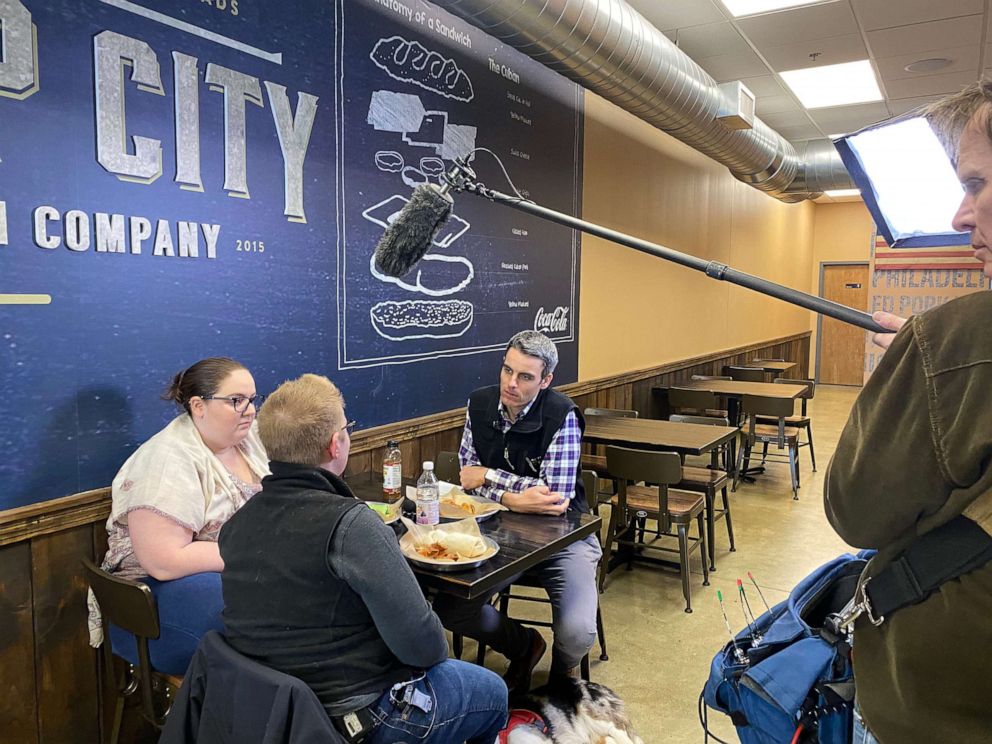
"It is terrible," said Brittany O'Donnell, chapter leader of New Hampshire Insulin4all, a nonpartisan grassroots network of people struggling to afford the drug. "It's fear. It's dependability. Everyone's leaning on each other for tips and tricks on how to afford these things, how to obtain these things."
Insulin prices have jumped nearly 300% in the last decade, according to the American Diabetes Association. The drug has been used to treat diabetes since 1922, but lax regulation and market pressures have sent prices soaring.
"It's not a Democrat or Republican issue. You'll hear from both sides the way that they plan on fixing this," said O'Donnell. "It's not an easy fix, but there are things that can be done."
The Trump administration has proposed allowing states to import some prescription drugs from Canada; but biologic drugs, like insulin, would be excluded.
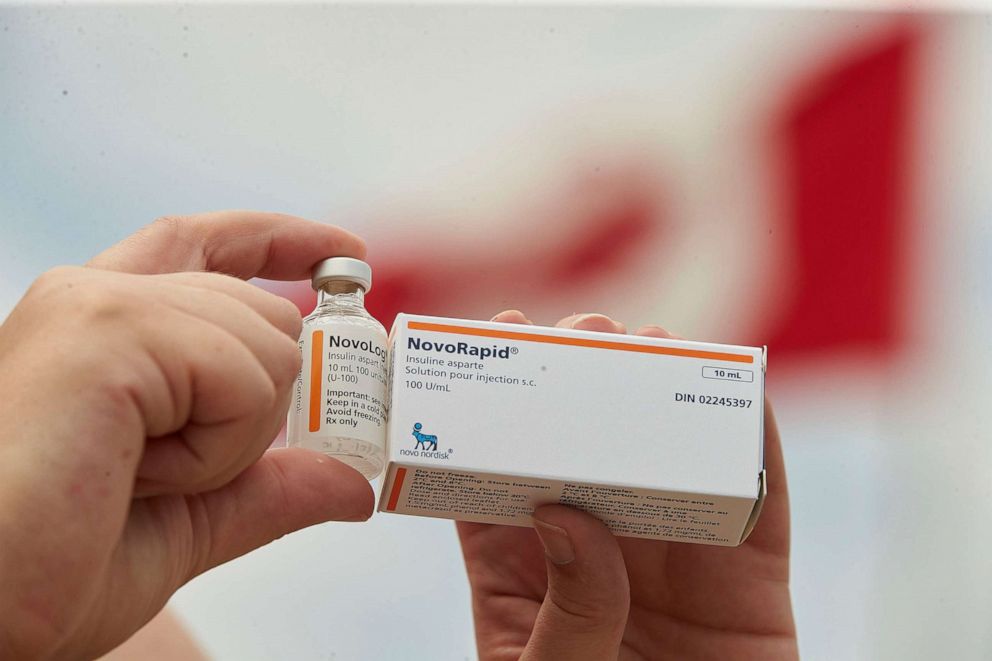
Many of the Democratic presidential candidates also support loosening restrictions on the importation of prescription drugs from overseas. Other proposals include mandated caps on out-of-pocket expenses for prescriptions, indexing the U.S. price of drugs to international rates and government manufacturing of some essential medicines.
"In essence, I feel trapped," said Amanda Bowen, a divorced mother of two teenagers in Goffstown, New Hampshire, who recently applied for Medicaid solely to be able to obtain insulin.
Bowen, who lives in her grandfather's home because she cannot afford rent, said monthly supplies of medical equipment and prescription insulin topped $2,000 when she was on private insurance. She currently earns $1,300 or less per month as a freelance photographer.
Since there's no cure for diabetes, Bowen needs to purchase a supply of insulin every month for the rest of her life.
"My son is Type 1 as well," Bowen said. "He's 14, and I hate to think of what it is that he'll have to go through if this problem isn't addressed."
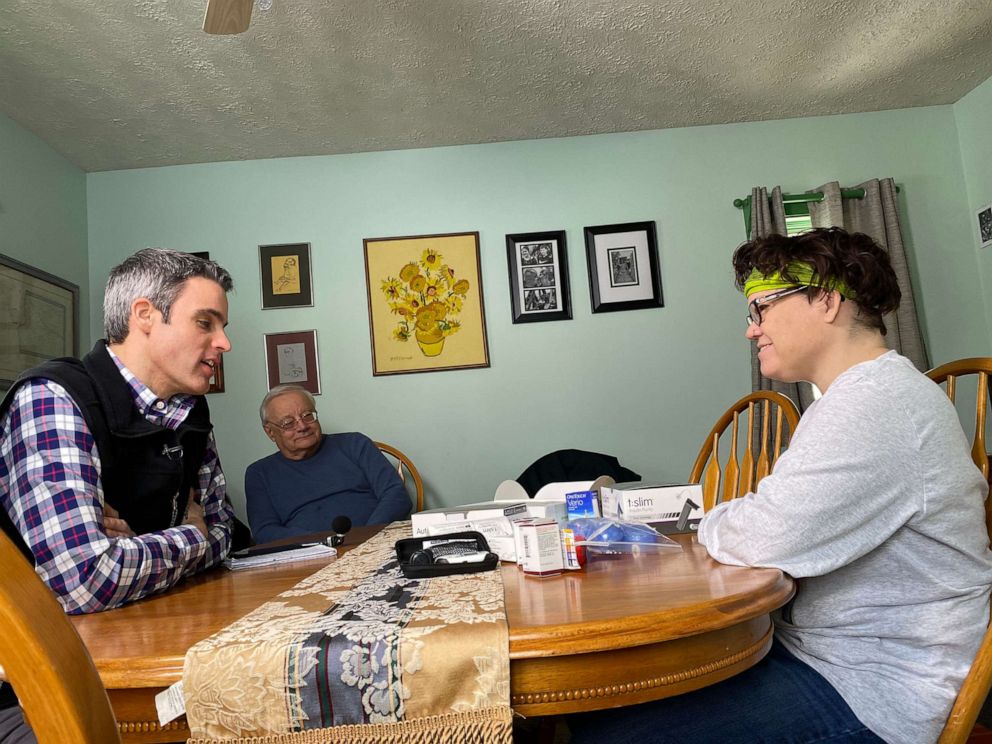
An estimated 7 million Americans need daily injections of prescription insulin to survive. Diabetes can develop at any age, often without any fault of the patient.
"Your pancreas no longer produces anything insulin-wise," said Patterson, who was diagnosed at 37. "It affects your mindset. It affects everything: your sleeping, when you work, if you exert activity. It affects everything."
Patterson gets health insurance through her employer, a local eye-care chain, where she works 50 hours a week. But with a high deductible and co-pays, the rising cost of insulin is a growing financial burden.
"I meet people all the time that are having to make choices between buying their drugs or buying food for their family," said Democratic presidential candidate Sen. Michael Bennet, D-Colo., on the stump in Manchester last week.
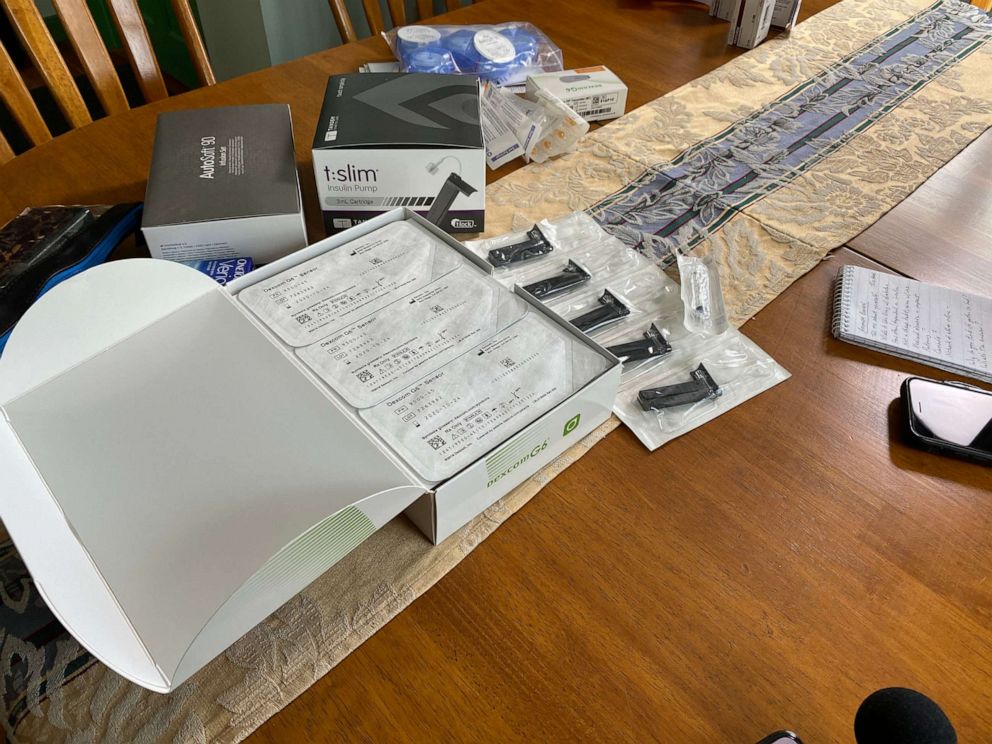
A recent study found one in four Americans with diabetes rations doses of insulin because of cost.
Brittany O'Donnell began cutting back on injections of the drug shortly after she aged out of her parents' health insurance plan at 26. "If my pump said it was out of insulin, I still tried to drop back whatever I could," she said. "I would feel terrible."
Rationing is also deadly. In 2017, the death of a 26-year-old Minneapolis man from insulin rationing made national headlines and served as a wake-up call for diabetics.
"It turned from an 'a-ha' moment to 'I'm angry,'" said O'Donnell.
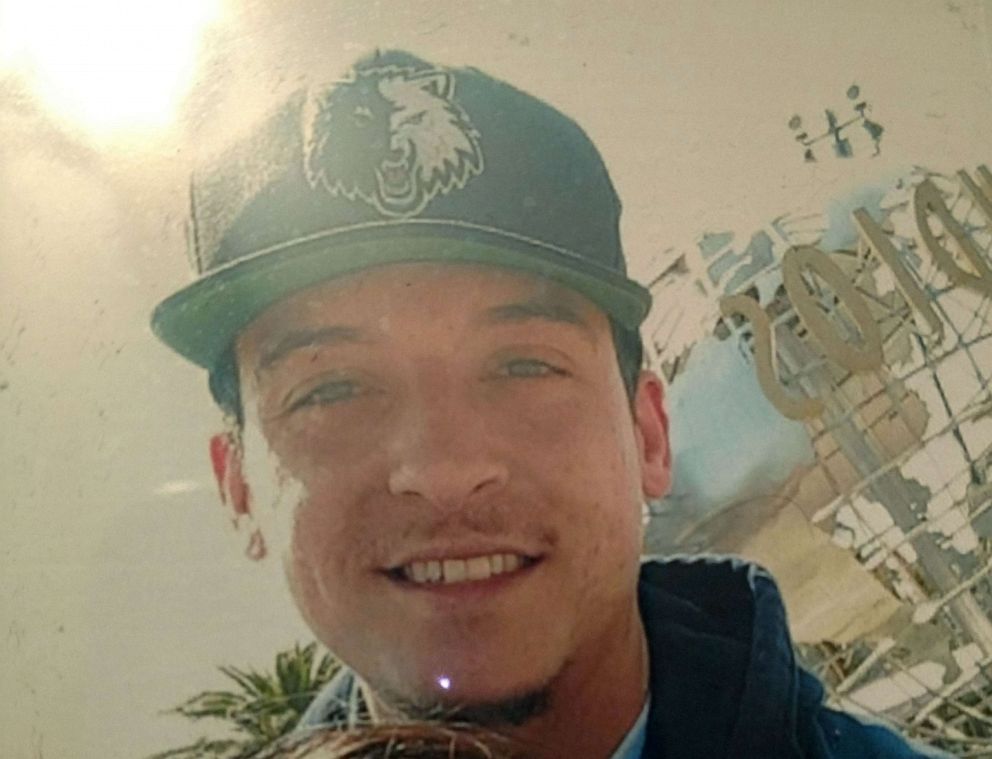
Alec Smith was a young restaurant manager just starting his career. "Basically, he was asked to pay $1,300 for his month's supply of insulin and he didn't have $1,300 in the bank," said his mother, Nicole Smith-Holt. "He went home without his insulin, and his body was found a few days later. He died."
Last June, it happened to newly engaged Josh Wilkerson of Virginia. The 27-year-old was found unresponsive one afternoon by his fiancée.
"We had to make the decision to pull him off life support. So he died June 15 because he could not afford his insulin," his mother, Erin Weaver, said.
Two weeks later, tragedy struck again. Jesimya Scherer-Radcliff, a 21-year-old diabetic who had been quietly rationing insulin, died in St. Louis Park, Minnesota.
"It's heartbreaking," said Patterson, "because if you knew what it was like to feel yourself slowly dying -- you start to feel heavy, you have trouble breathing … and you're still trying to maintain your job."
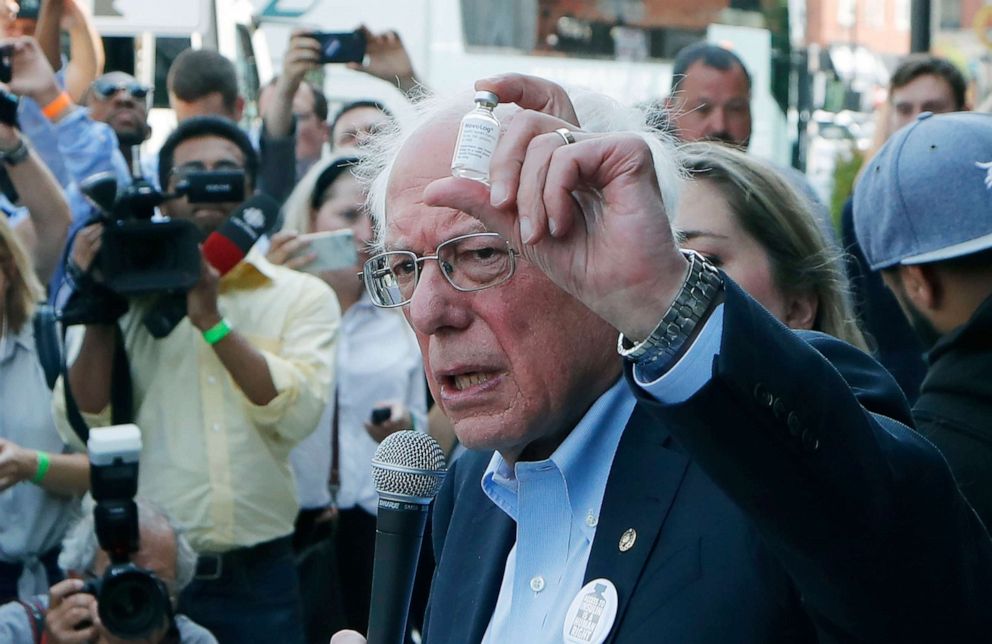
Many Americans have looked north for a solution, making the trip to Canada where insulin costs just one-tenth of what it does in the U.S.
"Insulin's been around a long time. You'd think they'd be able to knock the prices down," said Ray Clement, a retired facilities manager for the Catholic Diocese of Manchester and the father of diabetic Amanda Bowen.
Clement voted for Donald Trump in 2016. Bowen supports Vermont Sen. Bernie Sanders.
"I think our system is fairly decent right now, and I don't think I'd want to play with it," Clement said. "I think once the government gets involved in a lot of things that it's not the most efficient thing we can have. I think private insurance can handle it."
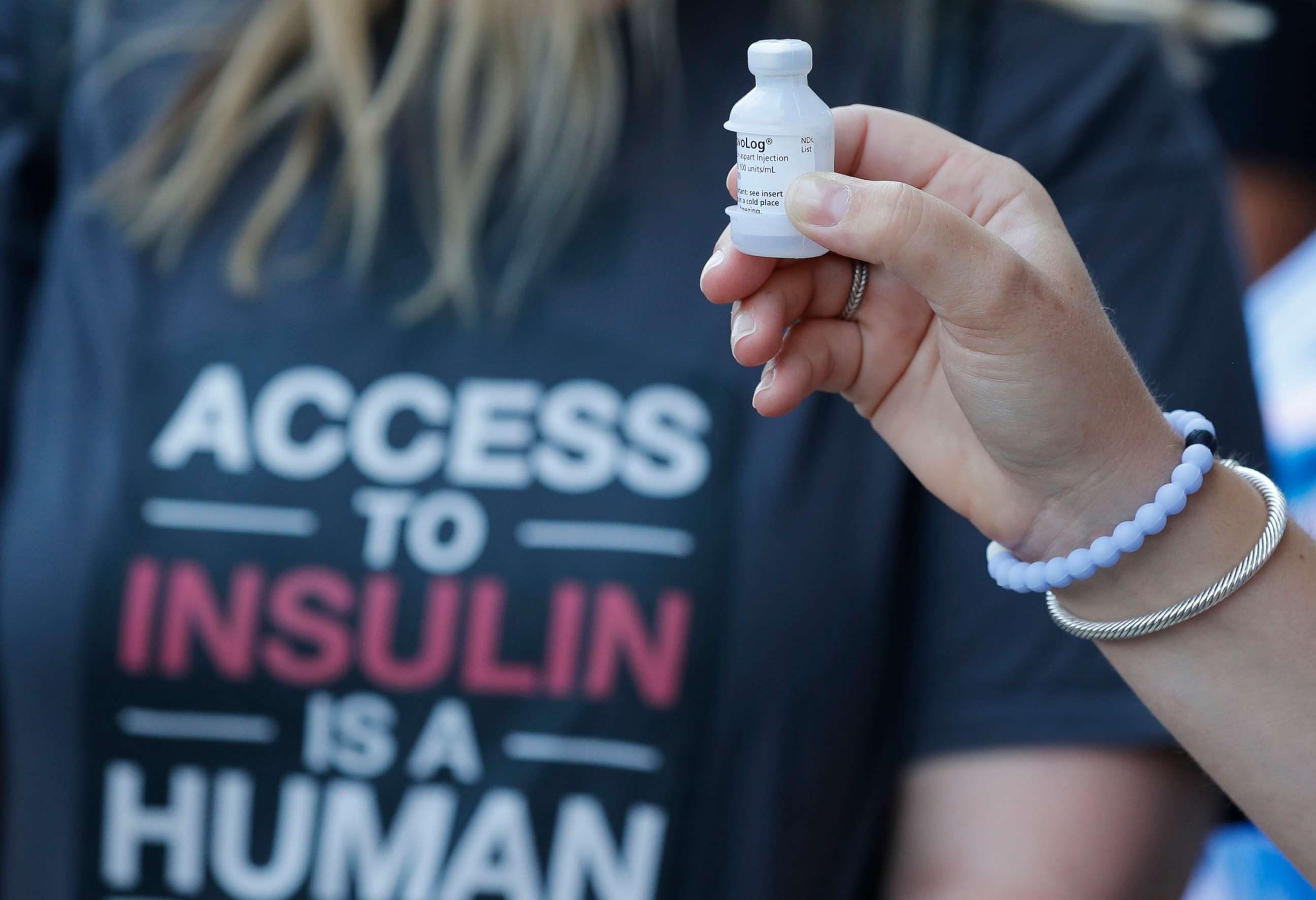
Patterson disagrees, believing the only way to stem the rising cost of insulin is some form of government intervention.
"I'm not 100% sure if this is the answer, but Medicare for All?" she said. "I would love to be able to walk into a pharmacy, get insulin at a zero dollar copay, and continue to live my life."
O'Donnell, whose advocacy group does not endorse candidates, said she's hopeful this presidential election campaign will be a turning point.
"I would just love to see a little less pointing fingers and a little more, 'This is the definitive answer,'" she said. "I would love for a candidate to step in and say, 'I want to address this for you now.'"




